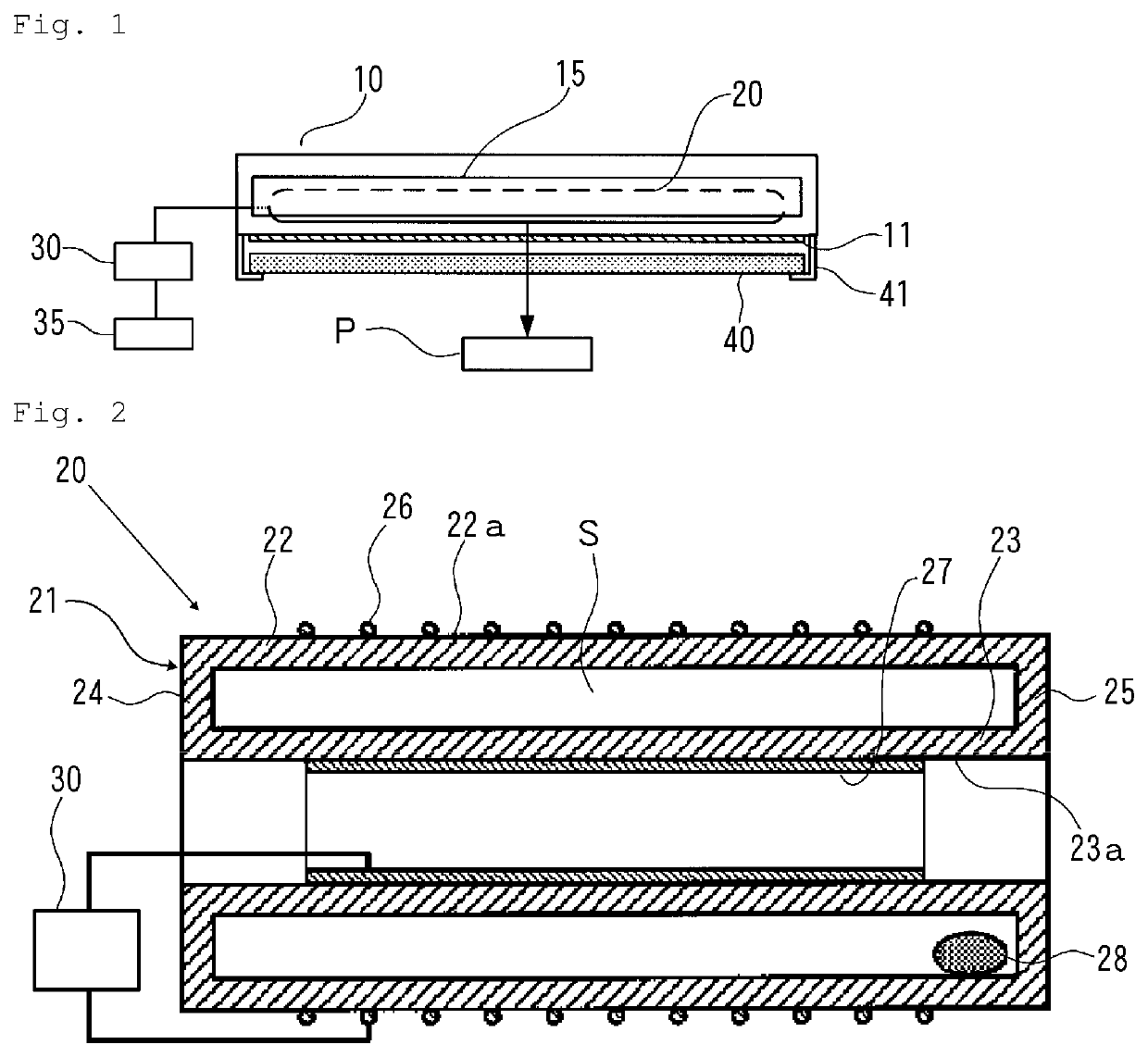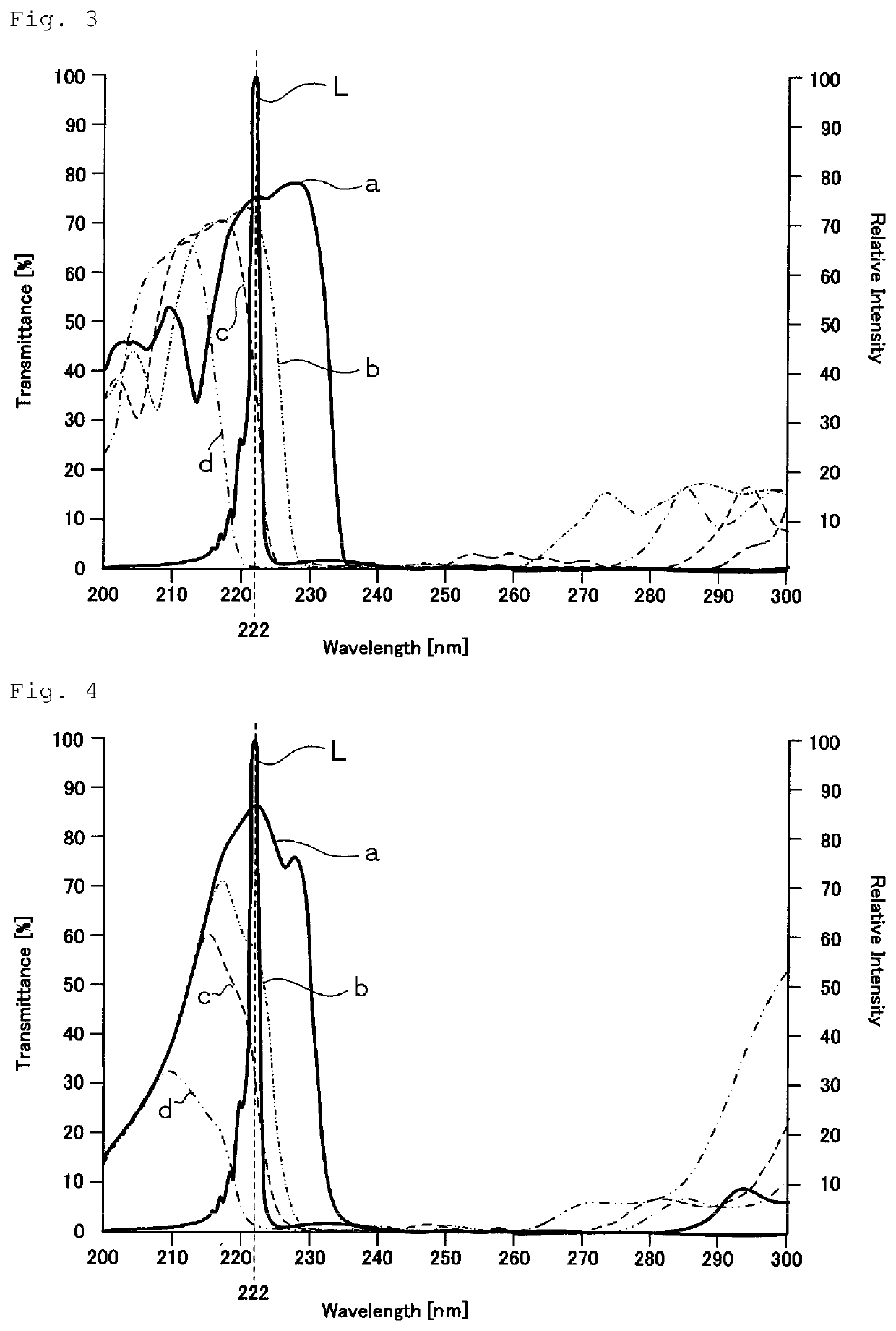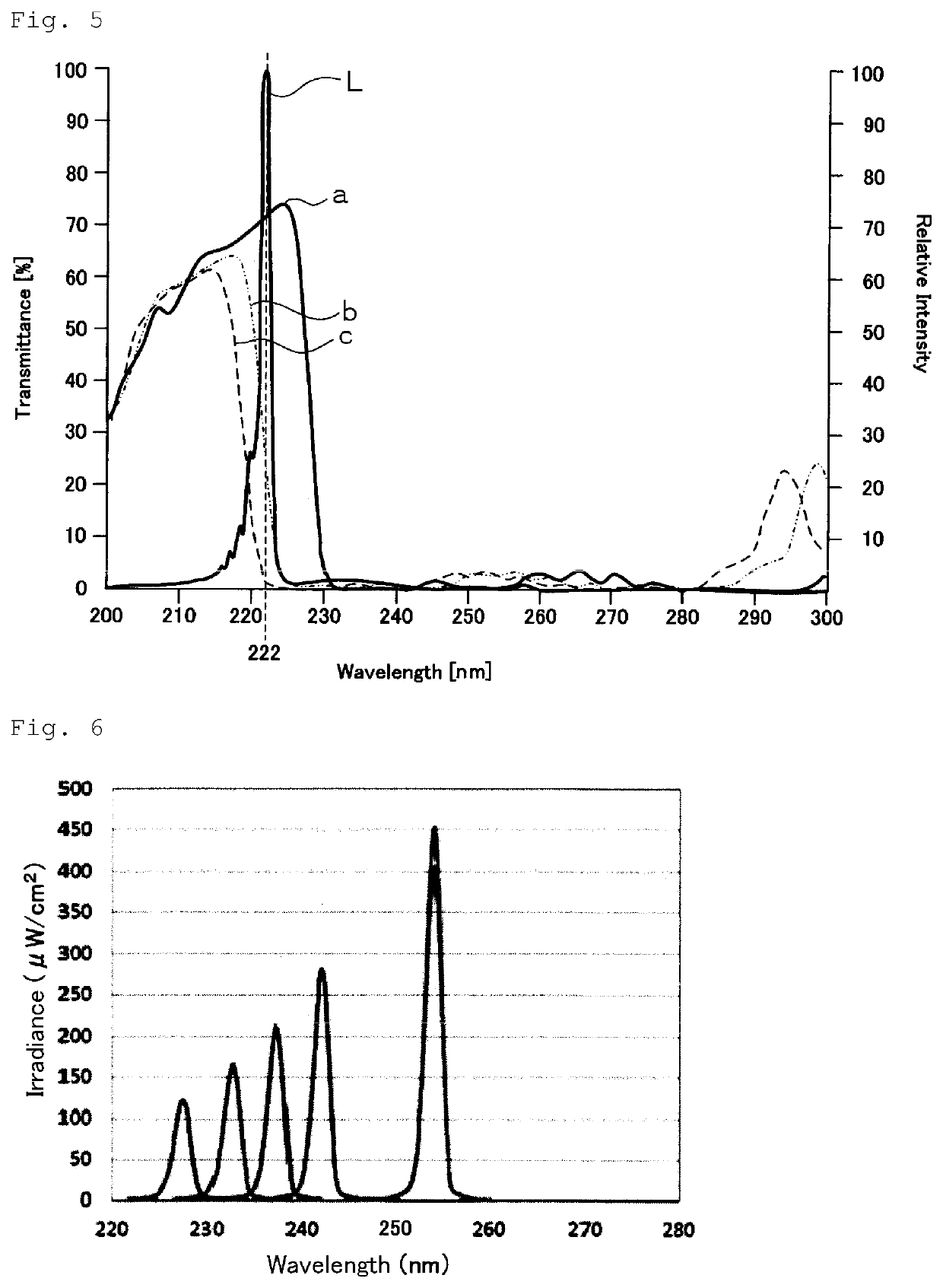Microbe inactivation processing device and cell activation processing device
a technology of inactivation processing and microorganisms, which is applied in the field of microorganism inactivation processing devices and cell activation processing devices, can solve the problems of damage to human normal cells, serious problems such as photoaging, skin cancer and the like, and achieve the effects of reducing the power requirements of the inactivation processing device, preventing or inhibiting damage to human body cells, and high efficiency
- Summary
- Abstract
- Description
- Claims
- Application Information
AI Technical Summary
Benefits of technology
Problems solved by technology
Method used
Image
Examples
Embodiment Construction
[0070][Microbe Inactivation Processing Device]
[0071]FIG. 1 is an explanatory view illustrating a configuration of an example of a microbe inactivation processing device according to the present invention.
[0072]The microbe inactivation processing device (hereinafter also simply called “inactivation processing device”) includes a casing 10 having a parallelepiped outer shape. One surface (bottom surface in FIG. 1) of the casing 10 is provided with a rectangular plate-shaped ultraviolet light transmission window 11 made of, for example, synthetic quarts glass, which transmits ultraviolet light.
[0073]In the casing 10, a rod-shaped excimer lamp 20, as a light source, is disposed to be opposite to the ultraviolet light transmission window 11. Behind the excimer lamp 20 in the casing 10, a trough-shaped reflective mirror 15 is disposed so as to enclose the excimer lamp 20, in order to reflect light from the excimer lamp 20 toward the ultraviolet light transmission window 11.
[0074]Since oxy...
PUM
| Property | Measurement | Unit |
|---|---|---|
| wavelength range | aaaaa | aaaaa |
| transmittance | aaaaa | aaaaa |
| wavelength range | aaaaa | aaaaa |
Abstract
Description
Claims
Application Information
 Login to View More
Login to View More - R&D
- Intellectual Property
- Life Sciences
- Materials
- Tech Scout
- Unparalleled Data Quality
- Higher Quality Content
- 60% Fewer Hallucinations
Browse by: Latest US Patents, China's latest patents, Technical Efficacy Thesaurus, Application Domain, Technology Topic, Popular Technical Reports.
© 2025 PatSnap. All rights reserved.Legal|Privacy policy|Modern Slavery Act Transparency Statement|Sitemap|About US| Contact US: help@patsnap.com



